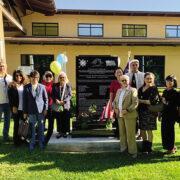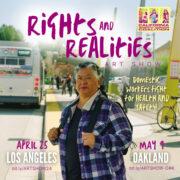(PART 3 of 3)
(Remarks of Hon. Jose De Venecia, Former Speaker, Philippine House of Representatives; Founding Chairman, International Conference of Asian Political Parties (ICAPP); Co-Chairman, International Association of Parliamentarians for Peace (IAPP); Chairman Emeritus, Universal Peace Federation (UPF);
Special Envoy of the President to the Asia-Pacific Economic Cooperation (APEC) and for Intercultural Dialogue at the UPF International Leadership Conference 2018 “Building a World of Lasting Peace: Interdependence, Mutual Prosperity and Universal Values” Seoul, Republic of Korea; February 18-22, 2018.)
The challenges and opportunities of the future
In a speech at the former East German city of Dresden on 2014, the former South Korean President Park Geun-hye said: “Just as the German people secured freedom, prosperity and peace by tearing down the Berlin Wall, we too must tear down barriers in our march towards a new future on the Korean Peninsula.”
Dear friends: We agree that for our peoples, the age of ideological conflict is over. All our countries now need to move beyond containment and confrontation toward cooperation and collective prosperity. Indeed, there is no other option.
Institutionalizing the Interfaith Dialogue
Excellencies, friends: We in the UPF campaigned in 2004 in the U.N. General Assembly, in the U.N. Security Council, in other halls of the U.N. in Europe for an inter-faith, inter-cultural, and inter-civilizational dialogue with our proposal to create an Interfaith Council in the U.N. or at least a focal point in the Office of the U.N. Secretary General, at a time when discussion of religion was somewhat taboo within the U.N. system.
If creating a new council is overly difficult—as some legalists have warned—then, perhaps, we could write an interfaith mandate in the mission order of the Trusteeship Council of the U.N. which had anyway ran out of trust territories to supervise. We had partially succeeded: today there is an Interfaith unit operating in the office of the U.N. Secretary General.
Since then, not only the United Nations and individual governments, but also civil society groupings, have been holding these important dialogues at local, national, regional, and international levels.
Excellencies, friends: From these Interfaith Dialogues, we should expect no miracles—except those epiphanies that result from open hearts, the willingness to see the other side’s viewpoint, and a multitude of patience.
Sunni-Shiite Dialogue
On the raging Sunni-Shiite issues and the extremist violence in the Arab world, and the emergence of ISIS-ISIL in the battlegrounds of Syria and Iraq and even Libya, one cannot discount the magnitude of the barriers that intense doctrinal separation has raised between the two great schools of Islam and the emergence today of the radical, violent Islamic extremists, ISIS-ISIL.
As we earlier advocated before in our letters to Saudi Arabia’s then King Abdullah and Iran’s spiritual leader Ayatollah Ali Khamenei, it would be of great relief to our region and indeed the world, if the two leaders of Islam, Saudi Arabia, representing the Sunnis, and Iran, representing the Shiites, respectively, could perhaps meet in Mecca and Medina and bring about the beginnings of reconciliation and the end of violence in the lands of Islam, and head off decisively the expansion and internationalization of the extremist groups, ISIS-ISIL. We believe the initiative is most difficult but not impossible.
The bloody Catholic-Protestant conflicts in Europe that ran for centuries have long since ended, the latest achievement being the relatively recent “Good Friday” peace agreement that ended the brutal politico-religious Catholic-Protestant wars in Northern Island.
In pursuit of lasting peace
Today, we sadly note the most discouraging ongoing multiple crises in our region: the extremist violence and the wars in Iraq, Syria, although we have seen recent improvement, and new hostilities in Libya, the continuing violence in Afghanistan, the unresolved Palestinian-Israeli conflict, the unending Azerbaijan and Armenia conflict over Nagorno-Karabakh, the continuing dangers and fear of explosion in the Korean Peninsula, the Buddhist and Muslim Rohingya difficulties in Myanmar, similar problems in Southern Thailand, the maritime tensions in the South China Sea and East China Sea, the Muslim and Communist insurgencies in the Philippines, and the other conflict areas in our region.
While we are deeply aware of the historical and cultural roots of many of those conflicts—and the enmity and bitter divisions that have grown between rivals—we cannot turn away from the pursuit of peace because the alternative, which is conflict and war, would be immeasurably costly and make all of us losers.
Understanding among the great civilizations
On our part, we must say that we must strive relentlessly then to achieve the multicultural understanding which is the only basis for the long-term security of our Asian region and the global community.
For understanding among the great civilizations is the only basis for global peace that will endure.
Indeed, to this purpose we must mobilize mosques, churches, temples, synagogues—Buddhists, Hindus, Confucians, and Jews, no less than Christians and Muslims—as well as political parties and the whole of global civil society.
And if there are historical grudges that remain, let us bring them out into the open, indeed, into the blazing searchlight of public scrutiny, if you will—so that they may be threshed out by dialogue, reason and compromise.
We must create space for alternative faiths
A great Western president once said memorably that the 21st Century will be defined by a simple choice that the nations must make—whether to emphasize their ethnic, ideological, and religious differences or their common humanity.
But nations can never make the right choice, for as long as their peoples insist that “our faith must reign supreme”—since this claim can be affirmed only by the negation of all other faiths.
We in the UPF and in the international organizations represented in our conference must learn to create space for other systems and alternative faiths.
After all, every great religion arose from the same wellspring of faith—accepting, for its central belief, God’s direct and decisive intervention in human history—by revealing Himself to humankind.
Lastly, we must all accept that peace is much more than the absence of conflict.
Excellencies, friends: Perhaps the time has now come for the President of South Korea to cross the 38th Parallel and journey to Pyongyang. Similarly, the leader of North Korea should take a glorious visit to Seoul. Something that the leaders of the two Koreas have not done before.
Today here in Seoul, we must take to heart the simple truth that peace indeed is a community of sharing; that we all belong to “one great human family under God.”





